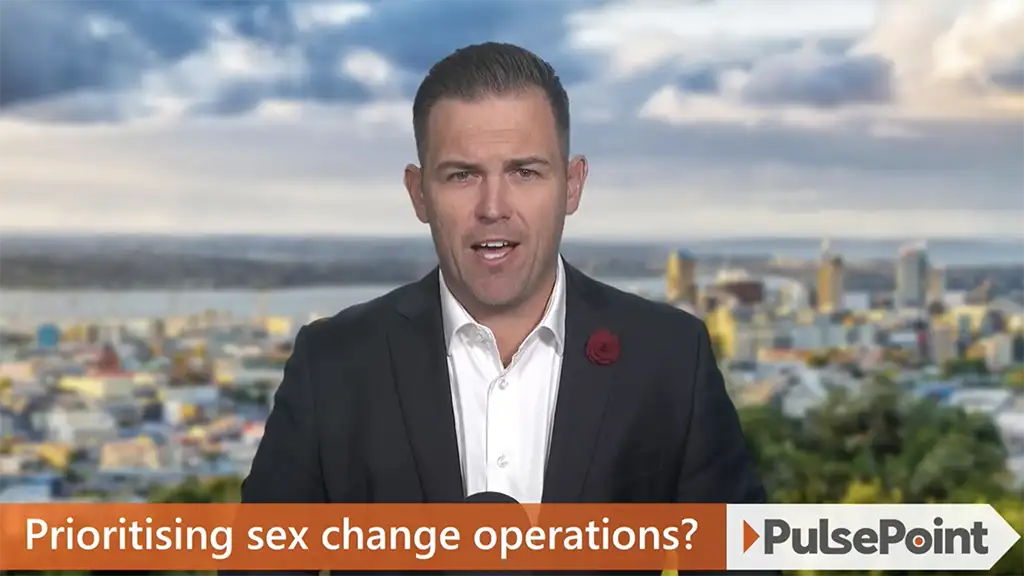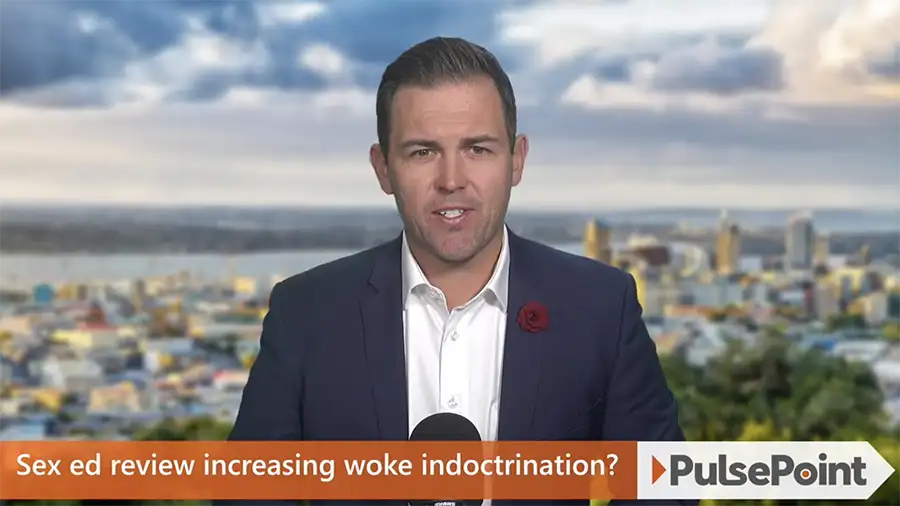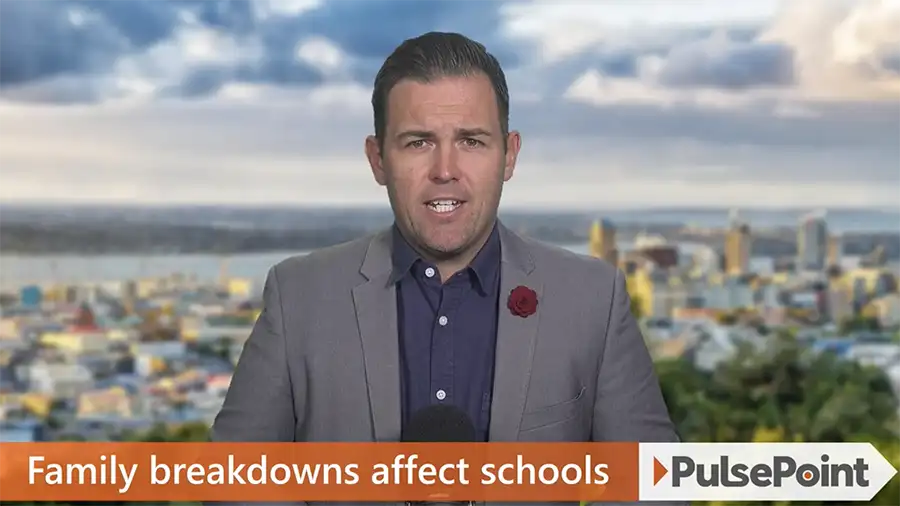Welcome to PulsePoint for 30th May 2024 – the latest media stories and research related to family and society that you need to know about – issues from both New Zealand and overseas that the Family First team have been monitoring and researching over the last week. It’s time to cut through the spin and uncover the real issues.
In this episode of PulsePoint, we’ll update you on these topics:
1. There has been Progress on the demolition of RSE. 00:53
2. InsideOut hide an inappropriate poem that they gave an award to. 03:17
3. Germany decriminalises child pornography. 05:12
4. New research links teen cannabis users to an increased risk of psychosis. 07:18
5. A new bill has been introduced to protect New Zealanders freedom of speech. 08:58
You can check out all these stories and more on our website FamilyFirst.nz. We’ll keep watching the news… so that you don’t have to.
TRANSCRIPT:
1. It appears that the Government has been listening to the concerns being expressed about the Relationships and Sexuality Education curriculum (known as RSE) over the past 12 months. Interestingly the concerns have been raised not only by parents but also by Principals.
The coalition agreement between National and NZ First says:
IMAGE – coalition agreement nz first
Refocus the curriculum on academic achievement and not ideology, including the removal and replacement of the gender, sexuality, and relationship-based education guidelines.
Last Sunday, the Minister of Education Erica Stanford was on Q&A on TVNZ and was asked about this issue.
Have a watch of her response.
VIDEO – erica Stanford RSE Q&A 26 may 2024 edited
It is significant that she has had huge feedback from both parents and principals. It is also encouraging that she’s acknowledging that the current guidelines are age inappropriate, and that it encourages the material to be spread through other subjects so that parents can’t remove their children if they object.
The real issue is what replaces the current guidelines – and who are the ‘experts’.
We’ll continue to monitor this closely.
You can read what’s currently in the curriculum at SexEducation.nz, and if you would like guidance on how to engage with your local school in the most effective way on this issue, read our guide at ParentGuide.nz
2. The activist group InsideOut which goes into school to promote radical sexuality and gender ideology has tried to ‘hide’ poetry that won an award because many people on social media said that there were potentially underlying themes of sexual innuendo, incest, and self-harm.
The poem entitled “Father and Son” was the winner of the Under-16 Poetry section. Despite the suppose-ed theme of smoking, when it was shared on Facebook and users were asked for their opinion on its appropriateness, many parents were horrified by the underlying themes running through it.
Significantly, since being publicised, the poem has been withdrawn from the InsideOut website. Now these are poems and stories that are recommended to all school students, including primary school.
We will not read the poem to you because of the inappropriate material but you can view it for yourself on our website under our Media Releases.
Another award winner in a separate older section talks about a trans ‘recipe’ involving pronouns and binding.
Other books recommended as part of the upcoming Pride Week campaign for primary age children are also problematic.
- I’m Not a Girl is about a transgender girl;
- My Shadow is Purple considers gender beyond binary in a vibrant spectrum of colour;
- This Is Our Rainbow includes a story about a tween girl navigating a crush on her friend’s mum;
- Alice Austen Lived Here – “Sam is very in touch with their own queer identity. They’re nonbinary, and their best friend, TJ, is nonbinary as well. Sam’s family is very cool with it…”
The Ministry of Education, as part of Pride Week in schools next month, is also recommending a School Journal story entitled Break-Up Day by transgender author Kyle Mewburn which chronicles his discovery in year 8 that nobody realised he was actually a girl and was in the wrong body – “a girl in a boy-shaped box”.
As with most of the content of InsideOut in schools, when parents are made aware of the nature of the content, they quickly become concerned. It is also disturbing that the Ministry of Education is promoting this material. It is time that the coalition Government delivered on their promise of removing InsideOut material and gender ideology from schools.
3. Germany’s parliament has approved a bill to decriminalize the distribution and possession of child sexual abuse material (CSAM) by reducing the minimum sentence and reclassifying the felony as a misdemeanour.
The new bill reduces the minimum penalty for possession to 3 months and for distribution to six months, in conflict with an EU directive that treats these offences as serious crimes. The government rationalizes the bill by highlighting that many offenders are teenagers who might unintentionally involve parents and teachers in notifying them of the problem.
A pro-paedophilia activist group K-13 welcomes the new law with founder Dietrich (D-track) Gieseking, (Video) who has a history of CSAM-related convictions, criticizing the government for not apologizing to those affected by the previous stricter law and advocating for lowering the age of consent.
The opposition Christian Democratic Union (CDU) denounced the “blanket reduction of penalty range,” calling for these offences to remain a crime and for separate and more direct solutions to address problematic cases.
To put the German law into perspective, here in New Zealand, under The Films, Videos, and Publications Classification Act 1993, possession of child pornography can be punishable by imprisonment of up to 10 years, or a fine of up to $50,000. Distributing this content carries a maximum term of imprisonment of up to 14 years. This shows just how weak and dangerous the German law has become.
4. A recent study led by researchers from the University of Toronto found that teens who use marijuana are 11 times more likely to be diagnosed with a psychotic disorder.
(Video)The risk increases to 27 times for those who visit the emergency room or are hospitalized. The new research, published in the journal Psychological Medicine, includes data from over 11,000 teens and young adults who were ages 12 to 24 at the beginning of the study.
(Video – Dr. Vin Gupta)
However, the risk of psychosis isn’t limited to teenagers. A landmark study published in the prestigious Lancet Psychiatry Journal in 2019 found that daily, average potency marijuana adult users were three times more likely to be diagnosed with first episode psychosis compared to non-users.
With daily use of high-potency marijuana, this number increased to five times more likely.
5. And finally, New Zealand First has introduced a Private Member’s Bill that they argue will protect New Zealanders’ right of free speech.
The “Protection of Freedom of Expression Bill” will ensure that no organisation or individual, when acting within the law, is unreasonably denied use of a public venue for an organised event, or gathering due solely to holding a differing opinion or belief.
This would apply to places such as Te Papa, universities, libraries, and other publicly funded buildings.
Leader Winston peters said, “Public venues paid for by taxpayers and local ratepayers should be available to anyone wishing to utilise those venues, and not be exposed to the ‘thinly veiled totalitarian thought police’ that have become so prevalent in New Zealand.”
There have been multiple instances of public authorities and venues attempting to shut down, cancel, or censor organisations and speakers solely because they hold contrary views including the recent child protection conference that Family First’s Bob McCoskrie and Simon O’Connor spoke at in Wellington.
Last October, National ACT and NZ First all said they would support such a bill.
However, it is still a private members bill, not a government bill – surprisingly, so it will need to be drawn from the biscuit tin before it can be debated.
It is good that rather than a hate speech bill which would shut down debate, there is now a bill that will allow free speech.
And THAT’S the latest episode of PulsePoint. You can check out ALL these stories AND MORE on our website familyfirst.nz. We’ll keep watching the news… so that you don’t have to.
See you next time.



